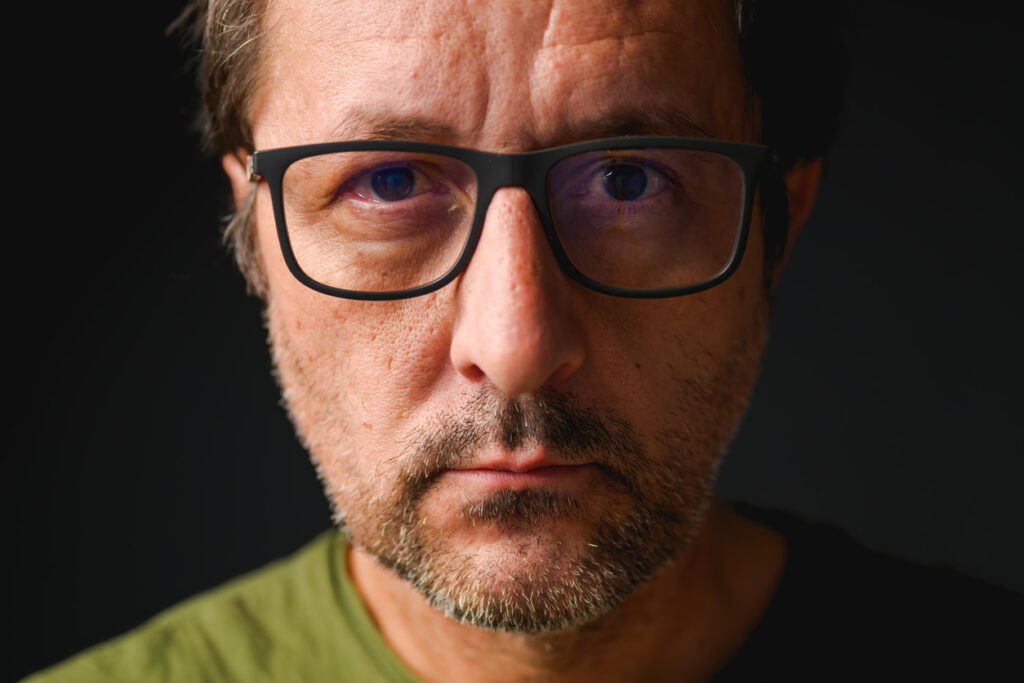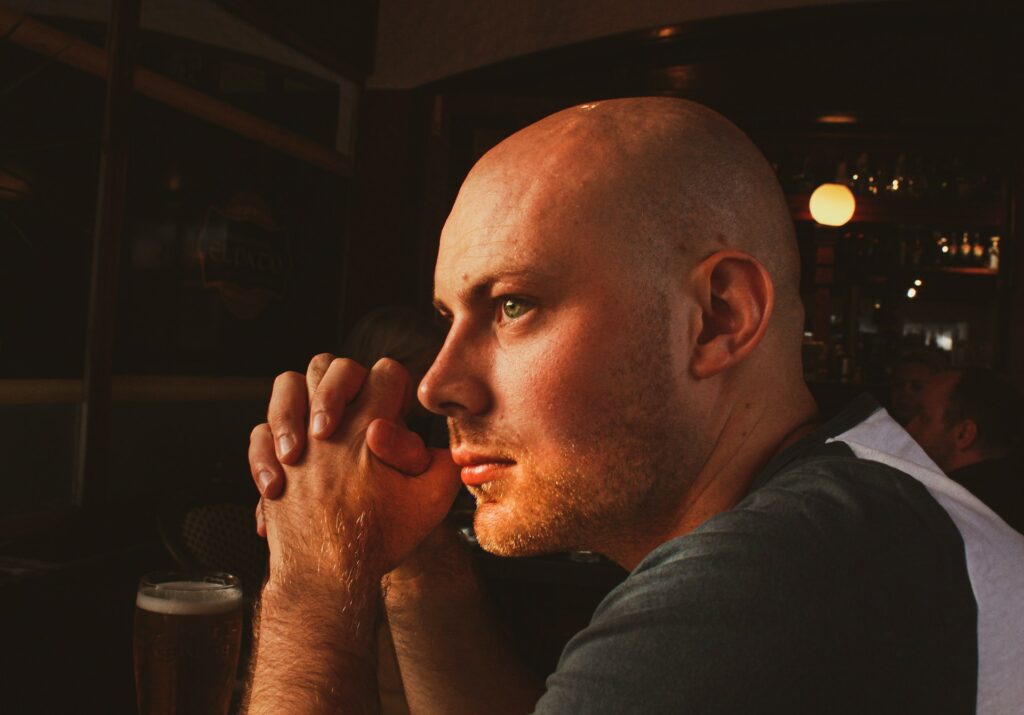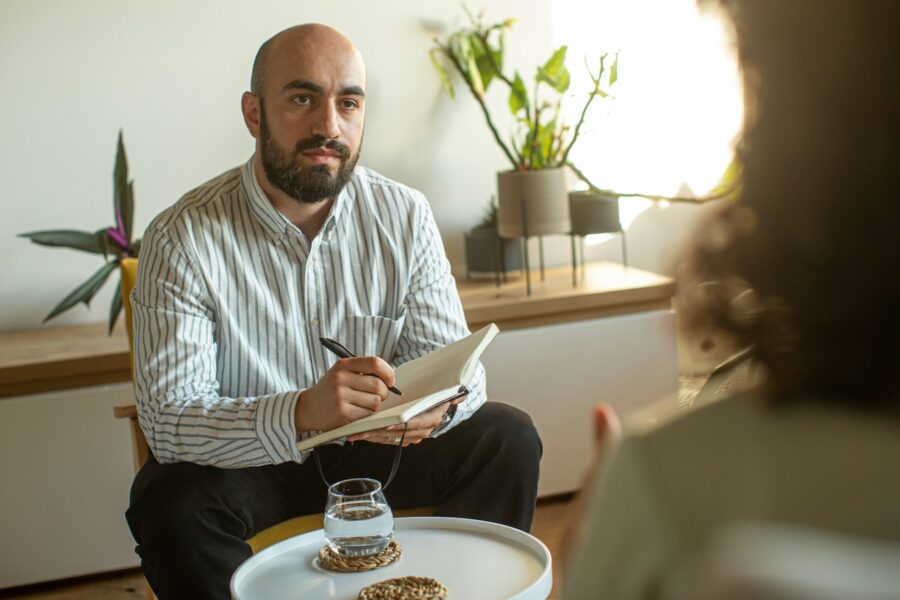Being self-aware is meant to help you grow, especially because it helps you pause before reacting, reflect on patterns, and treat people with more care.

However, when you can’t turn it off—when you’re constantly analysing yourself, your thoughts, your tone, your reactions—it starts to get you down. There’s a tipping point where growth becomes exhaustion, and mindfulness starts to feel like a full-time job. If you’re feeling mentally worn out and unsure why, here are some signs you might be suffering from the weight of too much self-awareness.
1. You replay conversations in your head constantly.

You can’t stop analysing how you came across—what you said, how you said it, whether it sounded wrong. Even harmless chats leave you with a mental checklist of possible mistakes or missed signals. This isn’t just overthinking. It’s a kind of emotional surveillance where you’re always scanning for proof that you messed up, even when nothing went wrong. Sadly, it leaves you feeling drained before the day is even over.
2. You second-guess your instincts even when they feel clear.

You can feel something strongly, but before you act on it, you spiral through every possible angle. What if you’re overreacting? What if you’re projecting? What if there’s something you’re not seeing? This loop keeps you stuck in hesitation, where you’re not living from clarity—you’re living from doubt. After a while, it becomes exhausting to even make basic choices without interrogating yourself.
3. You constantly monitor how you take up space.

You worry you’re talking too much. Or not enough. You’re aware of your tone, your body language, your energy, your impact—every moment, every interaction. It feels like being socially “on” all the time. Instead of just being yourself, you’re managing a version of yourself. That kind of mental load doesn’t show up in obvious ways, but it slowly chips away at your peace and confidence.
4. You over-apologise, even when you haven’t done anything wrong.

You pre-empt discomfort by saying sorry, just in case. You apologise for having needs, for taking up time, for asking questions, for existing slightly too loudly. It’s not because you’re weak—it’s because you’re hyper-aware of not wanting to hurt anyone. However, this constant self-editing tells your brain you’re always at risk of doing something wrong. That anxiety lives in your body, long after the apology is over.
5. You struggle to enjoy things without mentally narrating them.

You go on a walk and wonder if you’re being present enough. You rest and feel guilty about not being more productive. Even joy gets filtered through a lens of whether you’re doing it “right.” The pressure to be emotionally aware even during rest can ruin your ability to just feel something without dissecting it. It’s like mindfulness gone too far, where everything gets turned into a task.
6. You worry more about how you’re perceived than how you actually feel.

Instead of checking in with your own emotions, you default to asking how you’re being seen. Do you seem kind enough? Grounded enough? Confident but not intimidating? You adjust based on perception, not personal truth. That kind of external orientation might feel socially smooth, but it slowly disconnects you from yourself. You become who people expect, while your real feelings get quieter in the background.
7. You give other people emotional space, but never claim your own.

You’re great at validating other people. You understand their triggers, support their growth, and hold their complexity with care. However, when it’s your turn, you hesitate. You downplay your feelings. You make excuses for your pain. That imbalance comes from being too focused on being emotionally responsible. But even people who are self-aware deserve space to just feel, without always needing to process or explain it.
8. You rarely feel “done” processing anything.

Every insight leads to another layer. Every emotion sparks another question. You try to rest, but your mind brings up something else to work through. Even when you’re not actively self-reflecting, your brain still has tabs open in the background. That never-ending loop of inner work can feel noble at first—but it quietly becomes a kind of perfectionism, and it keeps you from actually landing in your own peace.
9. You feel guilty for setting boundaries, even when they’re healthy.

You understand people’s needs so well that saying no feels like a betrayal. You know how it might affect them, what it might trigger, how they might take it, and that makes it hard to choose yourself. That high level of self-awareness makes boundaries feel complicated, not freeing. Instead of just protecting your peace, you end up carrying the weight of how other people will emotionally respond to it.
10. You worry that your emotional awareness makes you “too much.”

You’ve probably been told you’re intense, deep, or “in your head” too often. So now, even when you’re just being honest, you worry it’s too heavy. You filter yourself so you don’t make anyone uncomfortable. It’s not about being sensitive; it’s about being stuck between knowing too much and not knowing what to do with it. As a result, it leaves you feeling isolated, even in connection.
11. You struggle to turn your brain off, even when you’re not in conflict.

There doesn’t have to be a problem for you to feel uneasy. Your mind still looks for things to fix, analyse, or improve because stillness feels suspicious. Like something’s being missed. That constant scanning mode keeps your nervous system on edge. Even when life is quiet, you don’t fully relax. Your self-awareness has become a form of self-surveillance.
12. You miss who you were before you knew so much.

There’s a part of you that longs for the version of you who didn’t carry this mental load. Who didn’t constantly check yourself, filter your words, or question your every emotion. Who just… lived. It’s not wrong to grow, but when growth comes without pause or rest, it becomes self-neglect. Sometimes the most healing thing you can do is stop reflecting—and let yourself be human for a while without improving anything.


